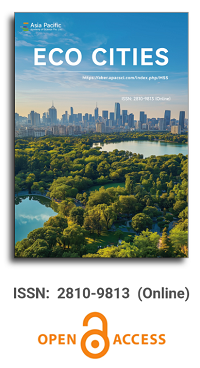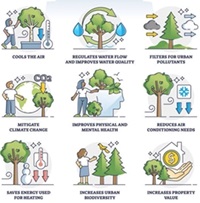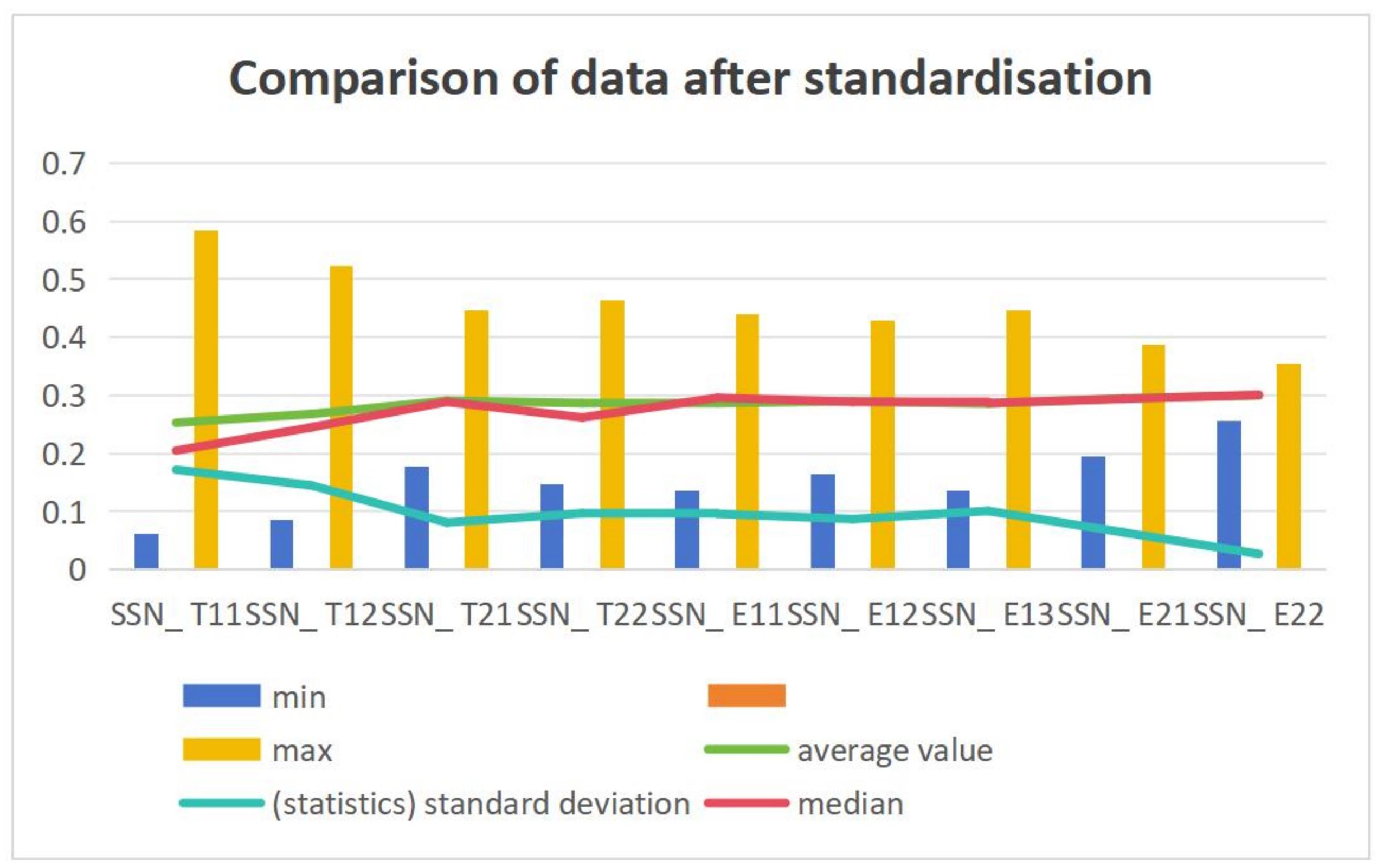


Henri Lefebvre and planetary urbanization: Progress and prospect
Vol 5, Issue 2, 2024
Download PDF
Abstract
Henri Lefebvre, a key Marxist urban theorist, introduced the concept of ‘Planetary Urbanization,’ a cutting-edge theory addressing emerging global forms of capitalist urbanization, where traditional urban theories have limited explanatory power. This paper reviews studies on planetary urbanization over the past 20 years in relation to Lefebvre’s urban theories. The report categorizes planetary urbanization’s contributions to urban theory into two primary aspects. First, it innovatively incorporates the processes of urbanization and the extended operational landscapes within urban research. Second, it proposes new trajectories for urban politics by reshaping Lefebvre’s concept of ‘the right to the city.’ However, by tracing Lefebvre’s theories, the report argues that planetary urbanization overlooks his emphasis on ‘everyday life’ while aligning with his views on generality and universality. Consequently, this dehumanized approach fails to uncover the significant political potential embedded in urban daily life. Additionally, by neglecting the differences among urban populations, the theory adopts a naive perspective on the subaltern’s capacity to articulate their ‘right to the city.’ Moreover, as a Eurocentric theory rooted in Western urbanization history, it inadequately explains context-specific events occurring in the urbanization of the Global South. Thus, this paper suggests that future research on planetary urbanization should incorporate considerations of urban everyday life, recognize social differences, and account for context-specific dependencies.
Keywords
References
- Soja, E (2014). Regional urbanization and the end of the metropolis era. In N. Brenner (eds.) Implosions/Explosions: To-wards a Study of Planetary Urbanization(pp.276–287). Berlin: Jovis.
- Lefebvre, H. (2003). From the city to urban society. In The urban revolution (R. Bonnono, Trans, pp.1-22). Minneapolis, MN: University of Minnesota Press. (Original work published in 1970).
- Lefebvre, H. (1991). Critique of everyday life, Volume I, Introduction (J. Moore, Trans). London & New York: Verso. (Origi-nal work published in 1947).
- Lefebvre, H. (2002). Critique of everyday life, Volume II (J. Moore, Trans). London & New York: Verso. (Original work published in 1962).
- Lefebvre, H. (1971). Everyday life in the modern world (S. Rabinovitch, Trans). Harmondsworth, London: Allen Lane Pen-guin Press. (Original work published in 1968).
- Elden, S. (2004). The critique of everyday life. In S. Elden (Eds). Understanding Henri Lefebvre: Theory and the possi-ble(pp.110-126). London & New York: Continuum.
- Lefebvre, H. (1996). The right to the city (E.Kofman, & E. Lebas, Trans). In Writings on cities(pp.63-181). Cambridge, MA: Blackwell. (Original work published in 1968).
- Brenner, N. (2013). Theses on urbanization. Public Culture, 25(1), 85-114.
- Merrifield, A. (2013a). The urban question under planetary urbanization. International Journal of Urban and Regional Research, 37(3), 909-922.
- Angelo, H., & Goh, K. (2021). Out in space: Difference and abstraction in planetary urbanization. International Journal of Urban and Regional Research, 45(4), 732-744.
- Lesutis, G. (2021). Planetary urbanization and the “right against the urbicidal city”. Urban Geography, 42(8), 1195-1213.
- Brenner, N., & Ghosh, S. (2022). Between the colossal and the catastrophic: Planetary urbanization and the political ecolo-gies of emergent infectious disease. Environment and Planning A: Economy and Space, 54(5), 867-910.
- Canettieri, T. (2024). THE DARK SIDE OF PLANETARY URBANIZATION: Operational Landscapes, Crisis and the ‘Pe-ripheral Condition’. International Journal of Urban and Regional Research.
- Yao, H., Huang, G., Chen, K., & Ye, C. (2020). Beyond ‘planetary urbanization’: New directions for urban research in China. Economic Geography, 40(4), 119-124. https://doi.org/10.15957/j.cnki.jjdl.2020.04.014
- Zhang, S. Z. (2023). Urban-rural integration in China under the perspective of planetary urbanization. China urbanization Research, 15(2), 175-198.
- Lin, M., & Zhang, Y. (2024). From ‘total urbanization’ to ‘planetary urbanization’: New developments in contemporary Western critical theory of the city. World Social Science, 32(4), 226-241, 248.
- Brenner, N. (2014). Introduction: Urban theory without an outside. In N. Brenner (Eds), Implosion/explosion: Towards a study of planetary urbanization (pp.15-30). Berlin: Jovis.
- Glaeser, E. (2011). Triumph of the city. New York: Tantor.
- Townsend, A. (2013). Smart cities: Big data, civic hackers, and the quest for a new utopia. New York: Norton.
- Hodson, M & Marvin, S. (2010). Urbanism in the anthropocene: Ecological urbanism or premium ecological enclaves. City, 14(3), 298-313.
- Roy, A. (2011). Slumdog cities: Rethinking subaltern urbanism. International Journal of Urban and Regional Research, 35 (2), 223-238.
- Wirth, L. (1938). Urbanism as way of life. American Journal of Sociology, 44(1),1-24.
- Davis, K. (1955). The origin and growth of urbanization in the world. American Journal of Sociology, 60(5), 429-437.
- Brenner, N., & Schmid, C. (2014). Planetary Urbanization. In N. Brenner (Eds), Implosion/explosion: Towards a study of planetary urbanization (pp.160-163). Berlin: Jovis.
- Martinez, R., Bunnell, T., & Acuto, M. (2021). Productive tensions? The “city” across geographies of planetary urbanization and the urban age. Urban Geography, 42(7), 1011-1022.
- Kamvasinou, K., & Iannizzotto, L. S. (2024, July). Rethinking the waste of planetary urbanization for urban challenges: Potential, Strategies and Governance in Terrain Vague projects. In AESOP Annual Congress proceedings (Vol. 36).
- Brenner, N., & Schmid, C. (2015). Towards a new epistemology of the urban? City, 19(23),151-182.
- Burgess, E. (1967). The growth of the city: An introduction to a research project. In R. Park & E. Burgess (Eds). The city (pp.47-62). Chicago, IL: University of Chicago Press.
- Ajl, M. (2014). The hypertrophic city versus the planet of fields. In N. Brenner (Eds), Implosion/explosion: Towards a study of planetary urbanization (pp.533-550). Berlin: Jovis.
- Luke, T. (2003). Global cities vs.’ global cities’: Rethinking contemporary urbanism as public ecology. Studies in Political Economy, 70(1), 11-33.
- Merrifield, A. (2011). The right to the city and beyond: Notes on a Lefebvre reconceptualization. City, 15(3-4),473-481.
- Merrifield, A. (2012). The politics of the encounter and the urbanization of the world. City, 16(2),265-279.
- Merrifield, A. (2013b). The politics of the encounter. In The politics of the encounter: Urban theory and protest under planetary urbanization (pp.54-72). Athens, GA: University of Georgia Press.
- Arboleda, M. (2015). Financialization, totality and planetary urbanization in the Chilean Andes. Geoforum, 67,4-13.
- Wilson, J. (2014). The violence of abstract space: Contested regional developments in Southern Mexico. International Journal of Urban and Regional Research, 38(2), 516-538.
- Peake, L. (2015). On feminism and feminist allies in knowledge production in urban geography. Urban Geography, 37(6), 830-838.
- Marx, K. (1963). Early Writing (T. B. Bottomore, Trans) (p.76), New York: McGraw-Hill.
- Estes, C. L. (2020). The new political economy of aging: Introduction and critique. In Critical perspectives on aging (pp. 19-36). Routledge.
- Best, J., Hay, C., LeBaron, G., & Mügge, D. (2021). Seeing and not-seeing like a political economist: The historicity of con-temporary political economy and its blind spots. New political economy, 26(2), 217-228.
- Stockhammer, E. (2022). Post-Keynesian macroeconomic foundations for comparative political economy. Politics & society, 50(1), 156-187.
- Fawcett, M. G. (2023). Political economy for beginners. In Women’s Economic Writing in the Nineteenth Century (pp. 55-71). Routledge.
- Fox, A. (2024). Market Failure, State Failure: The Political Economy of Supply Chain Strengthening to Ensure Equitable Access to Vaccines and Medicines in Low-and Middle-Income Countries. Journal of Health Politics, Policy and Law, 49(1), 43-72.
- Malthus, T. R. (2024). Principles of political economy considered with a view to their practical application. BoD–Books on Demand.
- Lefebvre, H. (1976). The survival of capitalism: Reproduction of the relations of production (F. Bryant, Trans). St. Martin’s Press: New York. (Original work published in 1973).
- Purcell,M. (1997) Ruling Los Angeles: Neighborhood movements, urban regimes, and the production of space in Southern California. Urban Geography, 18 (8),684-704.
- Spivak, G. (1988). Can the Subaltern Speak? In C.Nelson & L.Grossberg (Eds.), Marxism and the Interpretation of Culture(pp.271-313). Urbana, University of Illinois Press.
- Rodgers, D. (2009). Slum wars of the 21st century: gangs, mano dura and the new urban geography of conflict in Central America. Development and Change, 40 (5), 949-976.
Supporting Agencies
Copyright (c) 2024 Ziyan Huang, Kaixuan Huang
License URL: https://creativecommons.org/licenses/by/4.0/

This site is licensed under a Creative Commons Attribution 4.0 International License (CC BY 4.0).

Chinese Academy of Sciences, China
Indexing & Archiving
Asia Pacific Academy of Science Pte. Ltd. (APACSCI) specializes in international journal publishing. APACSCI adopts the open access publishing model and provides an important communication bridge for academic groups whose interest fields include engineering, technology, medicine, computer, mathematics, agriculture and forestry, and environment.



.jpg)

.jpg)



